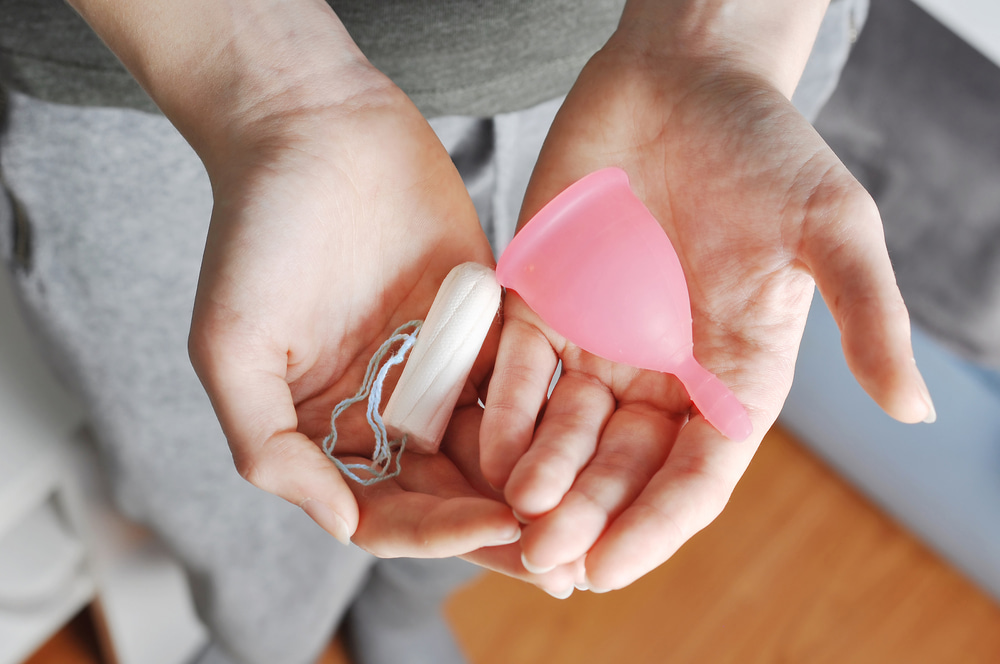Clue: The Menstrual App Empower Users to Take Back Control of their Bodies
updated on Aug 29, 2018

Discover the menstrual tracking app aiming to empower and educate users around the world, by helping them to take back control of their bodies, and their lives
Motorbikes and menstrual health might not seem to have much in common. But for Clue founder and CEO Ida Tin, they do.
Since its creation in 2012, Clue, a free period tracker app, has gained more than eight million active users – and it’s easy to see why.
With a simple interface, Clue can not only predict someone’s period and fertility window, but also helps users understand how their pain, emotions, sleep, sex drive, energy, cravings, digestion, skin, motivation, social life, diet and much more can be impacted by their cycle too.
Users can also track their use of contraception, premenstrual symptoms, their menopause and more, and can sync the app with Apple’s HealthKit to monitor cervical mucus, body temperature, and sexual activity.

Personal experience is at the heart of what Clue does – and, as Ida tells me, was the reason she decided to develop the app in the first place.
“Reproductive health is an incredibly foundational and central part of our lives, but there’s a real lack of clarity for women on this generally,” she says. “That starts the moment a woman has her first period and begins to manage that part of her life, and continues as she chooses whether or not she wants to use birth control and, if so, which method to use.”
Aged around 30, Ida realised her birth control wasn’t working for her. But despite her age, she had no idea what her options were. “I thought it was ridiculous that we were able to put a man on the moon, but we didn’t have a tool that would help us understand our body’s own patterns,” she says.
Before founding Clue, Ida managed a motorcycle tour company, leading trips all over the world. “Remote landscapes, like deserts, were my office,” she says. Ida is also a graduate from a Danish creative business school and wrote a best-selling book, Direktøs, about her experiences of touring the world on a motorcycle.
Ida believes that tracking a menstrual cycle can make all women “more empowered and more in control of their bodies and lives”.
“Our ongoing goal is to continue advancing research into female health, and to make basic information about reproductive health more accessible,” she says. “We are partnering with scientific institutions to further research into female health, and working to help more women become educated about their bodies.”
An information centre
Clue has now widened its offering, with a new website, helloclue.com, providing women and people who menstruate with “evidence-based, empathetic information about their health”. The site will offer content on a range of topics: the science of the menstrual cycle, illnesses, fertility, trans health, PMS, pregnancy, perimenopause, sex, birth control, and more.
“Educational content has always been important to the company,” the website’s editor, Amanda Cormier, explains. “But relaunching our website as a dedicated channel for this information is really our commitment to improving global knowledge of menstrual and reproductive health.”
![]()
Amanda, a former managing editor at The New Yorker website, reached out to Clue in 2017, describing herself as a “huge Clue fan” after reading their weekly newsletters.
“I felt that Clue’s voice and unique approach to health could be more robust, and made into a real destination online,” she explains. “I worked with an amazing software engineer, Omosola Odetunde, to develop and build the site.”
Amanda points to several visions for the site: first, providing context for the data Clue’s users track in the app. Most people know that period tracker software can predict their next period, but many don’t know how the cycle affects other elements of their health and wellbeing.
Clue users, on the other hand, are asked to track many aspects of their health: skin, hair, digestion, alcohol intake and more. “In order to understand why you should track [these] in Clue, you have to know how those things are affected by your cycle,” Amanda explains.
Information online, which many women turn to, is not always reliable, both Ida and Amanda point out.
“While it’s fantastic that women are open to sharing their information, it’s important to remember that experiences are unique to each person, and that posts on a forum do not always have scientific backing or a doctor’s approval, which makes the information unreliable,” Ida says. “We want to combat this, combining scientific and fact-checked information with a tone that’s relatable and empathetic.”
In 2017, Clue’s tech support team received 1,368 inquiries related to health. “‘Why is my period late? Why is my cycle irregular? When will I get my first period?’ We want to proactively answer those questions on our website,” Amanda says.
Improving knowledge
Clue had already published studies looking at cycle syncing and female condom use, but the team says it was “crucial” they had a website on which to share this information so they can “be the first to know about the results, and [to also] learn more about their bodies, and how their cycle affects other areas of their life”.

Amanda is “most interested” in Clue’s potential to reach new people and “to improve the state of knowledge about menstrual and reproductive health”.
“Google is still the way that many people get their health info – about 1% of all Google searches are symptom-related,” she says. “After Googling a symptom, there are many sources that people can get health info from, but they usually go one of two ways: reputable but sterile and clinical; or empathetic but lacking evidence for the information.
“With our website, we wanted to try something new: information that is supported by science, but with empathy at its core.”
Misinformation
Historically, menstrual and reproductive health is an area that has “not been treated with the same seriousness or attention as other aspects of health by the clinical establishment of doctors and scientific researchers”, Amanda says. Like many women, Amanda herself “had a hard time finding answers” to her health questions. Working at Clue, she says, has opened her eyes to even more about reproductive health.
Echoing her earlier point about Google, Amanda says that looking up symptoms or side effects online often leads people who menstruate to believe they are either “pregnant, seriously sick, or both”.
Ida agrees – “Anything regarding menstrual health has been considered as taboo by society” – pointing out that it was only last year that we saw the first sanitary product advertisements with red, rather than blue, liquid.

For decades, femtech products like Clue have been considered “niche”, only growing in prominence fairly recently. “Society is finally acknowledging that menstruation is something that affects half of the world’s population,” Ida says. “It should be something we speak about openly, and dedicate resources into researching.”
Amanda notes: “For thousands of years, women and people who menstruate have been discriminated against because of their biology. This is not news.
“But I’m excited about the ways current technology can empower women by spreading health information. Period tracking was so important to my own self-knowledge, and my ability to advocate for my own health.”
Emily Reynolds is a journalist and author based in London. She writes on mental health, health, gender and more, and is the author of ‘A Beginner’s Guide to Losing Your Mind’.

